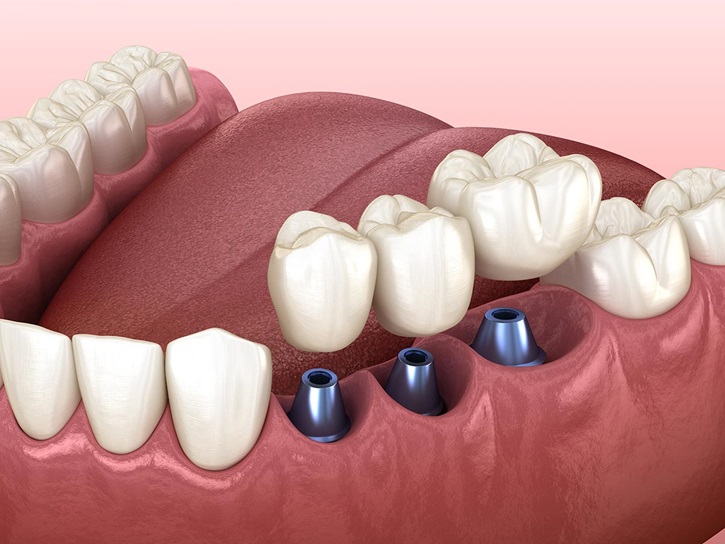
Missing teeth can be a significant dental problem that affects our daily lives, whether due to a car accident, severe dental trauma, or tooth extraction. Several dental methods are available to replace missing teeth, including Implant surgery, dentures, and dental bridges. Each option has its unique advantages and disadvantages, and the dentist will consider the patient’s dental and health status to recommend the most suitable treatment. However, dental implants are often considered the preferred option due to their numerous advantages and benefits. Dental implants potentially provide a more permanent solution to missing teeth and offer a natural look and feel. According to a dentist offering affordable dental implants cost in Vancouver, they also help prevent bone loss and maintain the integrity of surrounding teeth. As a result, dental implants are often considered the best option for restoring dental functionality and aesthetic appearance. If you are considering tooth replacement options, discussing your options with your dentist to determine the best treatment for your specific needs and circumstances is important.
Top Tips about Replacing Lost Teeth with Teeth Implants
An implanted tooth is a dental restoration that provides a stable base for an artificial tooth that closely resembles a natural tooth. This method involves surgically placing an implant into the jawbone to replicate the function of a natural tooth root. The implant is designed to blend in with the surrounding natural teeth in terms of appearance and offers several precious advantages over other dental restoration options. Implanted teeth do not harm surrounding natural teeth and provide greater convenience than other options. Although they may be more expensive than other methods, dental implants are safe and effective. They require a minor surgical procedure but can look, feel, and function like real teeth with proper care. This dental treatment is often recommended for patients with one or more lost teeth, a fully developed jawbone with sufficient bone for implantation, no medical conditions that could interfere with bone healing, a preference for fixed solutions over removable dentures, and a willingness to undergo a longer treatment process.

Modern dentures are dental appliances tailor-made to replace missing teeth and surrounding tissues. They are removable and can effectively restore a patient’s smile and improve their quality of life. There are two types of dentures: complete dentures and partial dentures. Complete dentures are recommended when all the teeth in an arch, either the upper or lower jaw, are missing. They are designed to provide a natural-looking smile and restore the patient’s ability to chew and speak properly. Typically, complete dentures consist of a gum-colored acrylic base that fits over the patient’s gums, with prosthetic teeth attached to the base. After getting dentures, people may experience common side effects such as difficulty pronouncing certain words and learning to eat and chew food properly. However, these temporary issues can be overcome with patience and practice. As you become more comfortable with your dentures, pronunciation difficulties will improve, and it’s important to keep practicing and speaking out loud to speed up the adjustment process.





